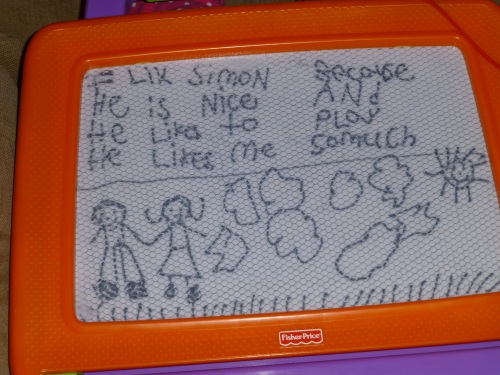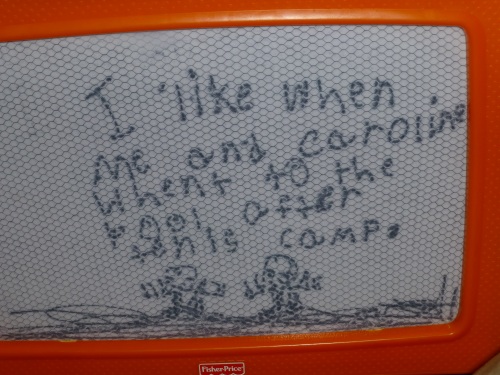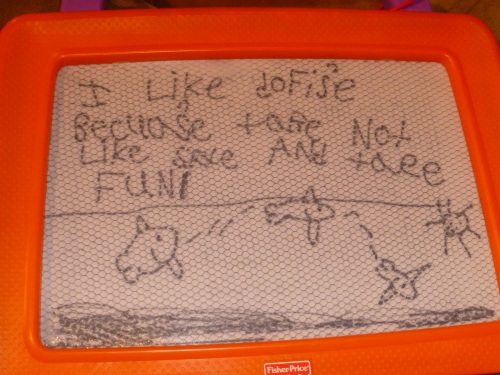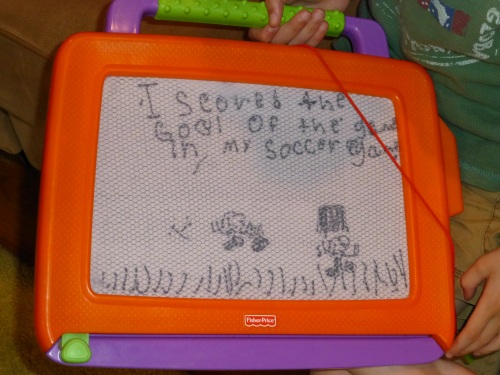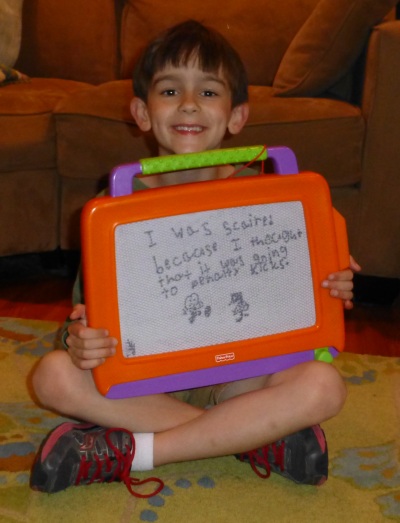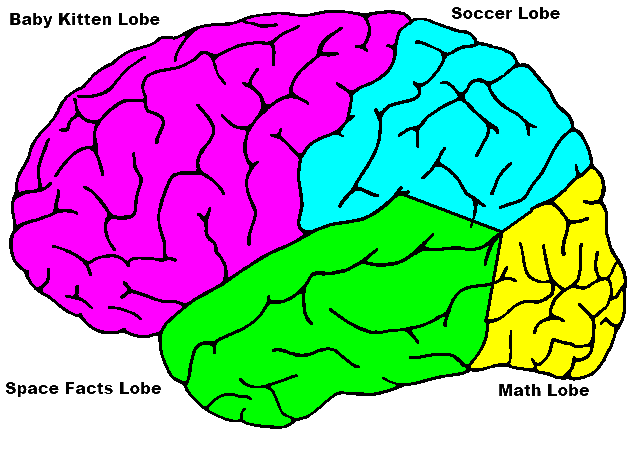After my little chat with Mr. Sowder about Simon’s lack of assertiveness a few weeks ago, I got to thinking about Simon’s basic temperament and how different it is from most of his classmates. He’s always stood out—and apart—from many of his peers. That led me to see, on a whim, whether I could guess his Myers-Briggs type.
So is he introverted or extroverted? Introverted all the way. I should have known this when, at age 2, he’d come home from school and tell me that he “watched my friends play”. So there’s the I, like Matt. He’s also one who likes to deepen his knowledge in a given topic and who very much lives in his head–all hallmarks of the I type.
How does he perceive the world and gather information? Well, he’s a fact collector for sure. But he’s not and never has been hands-on. That’s why I backed off of the Montessori approach for him. Simon has an uncanny interest in the theoretical or possible. He likes to think about infinity and Googol-plexes and asks unanswerable “what if” questions. His response to “that’s not possible” is always “but if it did happen anyway?” And he’s always looking for connections; he tells me what countries clouds looks like and recently observed that “that barf [on the Big Four pedestrian bridge] is shaped like South America.” That would make him an N, like me and Matt.
What about decisions? Does Simon lead from the heart or the head.Well, he’s super emotional, super sensitive, and super tuned into to others. But he’s a rule follower and quite logical. And if it comes down to it, he’ll go with what facts, logic, and rules tell him ought to be the case, even if he later struggles with that choice. So he’s an on-the-fence T, like Matt.
That brings me to the last piece. Is Simon someone who likes things settled? Is he organized and possessed of follow-through, like a J? Or is he the type to have many starts and few finishes, happy to leave options open and have things be unsettled. Hahaahahahha. Like his mother, he is all J. He might ask me an unanswerable question about negative infinity or where he’ll live when he grows up, but the boy wants a solid answer. And he always wants to finish what he started, even if he’s bitten off more than he can chew.
So I put this all together: INTJ. And looked it up. And do you know what they call this personality type?
“The Scientist”
I’m not making that up! Another site termed it “The Mastermind” and illustrated it with a chess board. Whatever you want to call it, it’s a rare personality type that is found in people ranging from Newton to C.S. Lewis, to Paul Krugman. Given Simon’s natural love for math and science, his interest in chess, and the way he’s always looking to space a soccer field, I think I got it. And given its rarity, I think I get why so many don’t fully “get” him.
p.s. To extend the laugh, Matt’s type comes up as “The Engineer” and mine as “The Mentor”.
